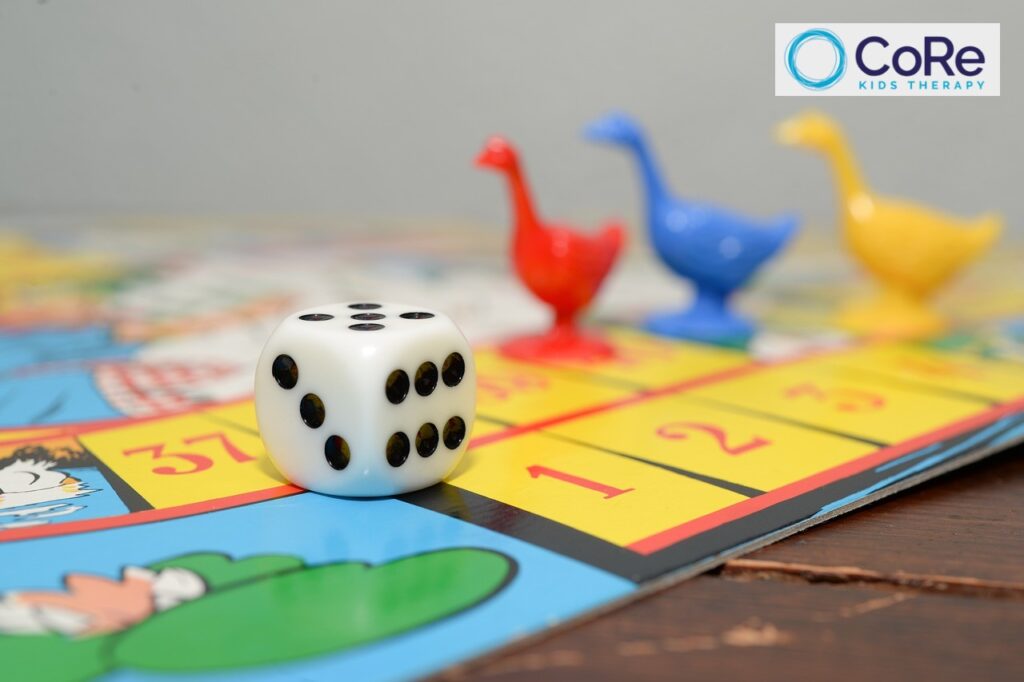Written by Lea Tanner, Provisional Psychologist / Associate Play Therapist, CoRe Kids Therapy
While executive functioning involves several processes in the brain, there are three core components: cognitive flexibility, inhibition, and working memory. These three processes play critical roles in everyday life. A child’s executive functioning skill level can vary depending on factors including stage of development, environmental influences, neurodivergence, genetics, and several other factors. Challenges in executive functioning can impact an individual’s ability to adapt to daily life; some children may require extra support in some areas of executive functioning. Just as muscles can grow if it is worked, we can use various strategies and games to help children strengthen their executive functioning skills.
This article focuses on how to develop one of these core components.
Working Memory
Working memory is the ability to retain one or more pieces of information and use this information to complete a task. It’s crucial for following instructions, problem-solving, decision-making, and reasoning. It also helps us learn new concepts, solve problems, and organise our day. Here are some ways you can support the development of your child’s working memory:
- Memory Games: Play classic memory games like Memory (matching pairs of cards face down) or I Spy (describing items for the child to remember and find). These games help strengthen working memory by requiring children to remember the location of objects or details over short periods.
- Story Retelling: Encourage your child to retell stories or events they’ve experienced using as much detail as possible. This exercise helps them hold information in their working memory and organise it into a coherent narrative.
- Sequencing Activities: Engage in activities that involve sequencing, such as putting together a puzzle, following a recipe, or arranging story cards in the correct order. Sequencing tasks help children practice holding and manipulating information in their working memory.
- Chunking Information: Break down information into smaller chunks to make it easier for children to remember. For example, teach them phone numbers or addresses by grouping digits into smaller sets.
- Rhyming, Wordplay, Mnemonic Devices: Engage in activities that involve rhyming, wordplay, or tongue twisters. These exercises challenge children to hold phonetic information in their working memory while manipulating sounds and words. You can also encourage your child to create memory aids, such as mnemonic devices, visual cues, or verbal reminders, to help them remember information more effectively.
- Simon Says Challenges: Play Simon Says with increasingly complex instructions, requiring children to remember and follow multiple steps. For example, “Simon says, touch your nose, then jump twice, and clap your hands.” Games like this aim to develop their auditory working memory.
- Drawing from Memory: After studying a picture briefly, have your child pull it from memory. This activity encourages them to visualise and recall details, strengthening their visual working memory.
- Sleep Quality: Prioritise adequate sleep and ensure sound sleep hygiene. Sleep plays a crucial role in memory consolidation and cognitive function; getting enough quality sleep is essential for optimal working memory capacity.
- Play and Socialising: Engaging in play and conversation with peers can provide opportunities to engage and develop working memory. Discussion, negotiation, play, and collaboration with others can help strengthen working memory capacity. Active participation requires children to process information and hold themes of the play or conversation in their mind.
The information provided in this blog should be used for education and informational purposes only. It should not replace the therapy or the therapeutic relationship. If you require parenting or mental health support for your child, please don’t hesitate to reach out to the team at CoRe Kids Therapy.

